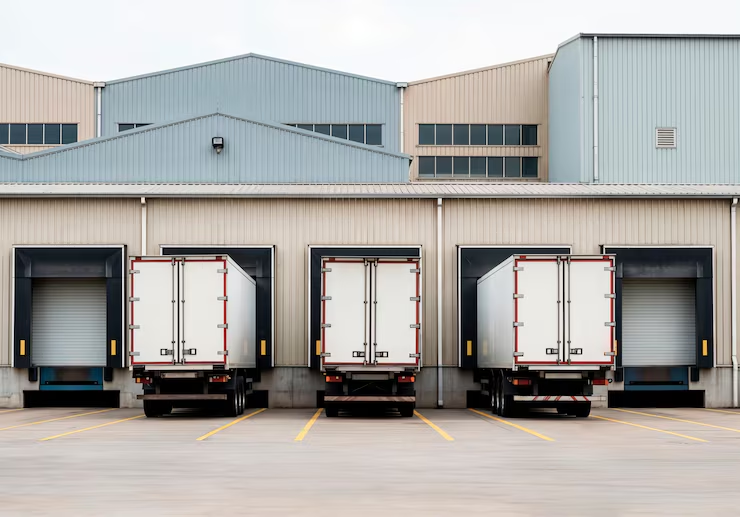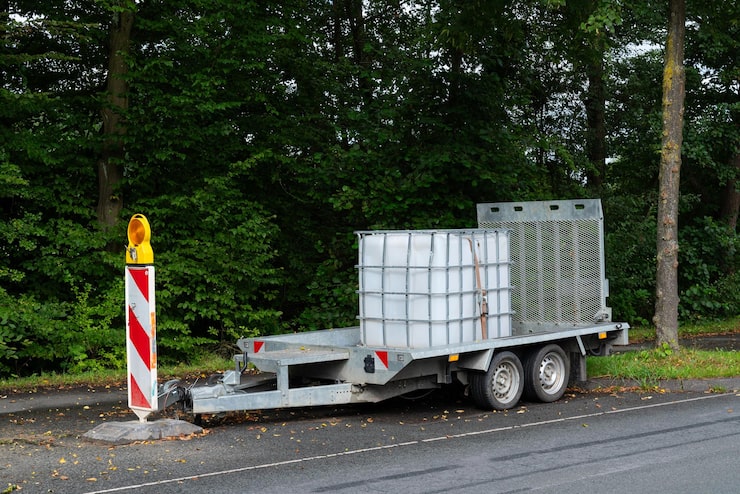Supply chains rely on the seamless movement of goods across multiple stages, from manufacturers to warehouses to retailers. Any inefficiency at the fleet level has a ripple effect on the entire chain. Logistics Fleet Management ensures that every vehicle, trailer, and driver contributes to smooth, efficient, and compliant operations.
Without structured management, trucking companies face higher risks of breakdowns, missed deadlines, and compliance failures. A professional approach transforms fleet operations from a daily struggle into a strategic advantage, allowing supply chains to operate at maximum capacity while keeping costs under control.
How Logistics Fleet Management Improves Efficiency
Efficiency is the lifeblood of modern supply chains. A delay in one section can cascade into missed deliveries and dissatisfied customers. Logistics Fleet Management reduces inefficiencies by monitoring vehicle utilisation, scheduling preventive maintenance, and optimising routes.
Through structured oversight, companies minimise fuel consumption, reduce idle times, and increase delivery accuracy. Drivers operate with clear schedules, dispatchers gain real-time visibility, and customers benefit from consistent service. Over time, this efficiency becomes a competitive edge in a demanding logistics environment.
Compliance and Legal Requirements in Fleet Operations
Fleet operations are subject to strict federal and state regulations. DOT inspections, driver hour limits, and vehicle safety standards all require ongoing attention. Logistics Fleet Management programs ensure that fleets remain compliant by integrating inspections, record-keeping, and safety protocols into daily operations.
Failure to comply with these regulations can lead to fines, service interruptions, and increased liability. By adopting structured management solutions, companies not only avoid penalties but also demonstrate professionalism and reliability to clients who demand compliance at every step.
The Role of Technology in Modern Fleet Management
Technology has become an integral part of how fleets are managed. Logistics Fleet Management systems now use GPS, telematics, and predictive analytics to deliver real-time insights into fleet performance. Managers can track vehicle locations, monitor driver behaviour, and anticipate maintenance needs before breakdowns occur.
Mobile apps and cloud-based dashboards give dispatchers the ability to make adjustments instantly. Predictive analytics forecast demand and optimise scheduling. By using these tools, logistics providers transform raw data into actionable strategies that strengthen the supply chain from end to end.

Risk Reduction Through Fleet Management
Risk in logistics comes in many forms, from accidents and breakdowns to non-compliance and theft. A comprehensive Logistics Fleet Management program addresses these risks by ensuring that vehicles are inspected regularly, drivers follow safety guidelines, and data is tracked accurately.
With safety checks and monitoring in place, companies lower accident rates and protect valuable cargo. Compliance oversight reduces exposure to legal risks, while real-time tracking adds security by ensuring vehicles remain within designated routes. Effective management significantly lowers the probability of costly disruptions.
Cost Savings Across the Supply Chain
The financial benefits of structured fleet programs cannot be overstated. While management requires investment, the savings achieved through Logistics Fleet Management are substantial. Preventive maintenance reduces repair costs, optimised routing lowers fuel expenses, and reduced downtime increases fleet productivity.
Over the long term, companies that prioritise structured management see improved profit margins. By eliminating inefficiencies and maintaining continuous operations, they reduce waste and reinvest savings into growth, innovation, and customer service improvements.
Benefits for Supply Chains of All Sizes
From small regional operators to nationwide carriers, all supply chains benefit from Logistics Fleet Management. Smaller businesses gain structure and predictability, while larger networks achieve scalability and uniform standards across multiple hubs.
For businesses that handle time-sensitive deliveries or operate in competitive markets, fleet management creates the reliability needed to retain clients and grow business. Regardless of size, companies that invest in professional fleet programs position themselves for long-term success.
Zelo Express: Your Partner in Fleet Management
Zelo Express delivers tailored Logistics Fleet Management solutions that align with the unique needs of each client. Our services integrate inspections, shuttle operations, fleet oversight, and yard audits with advanced technology. This ensures that fleets not only remain compliant but also achieve measurable gains in efficiency and reliability.
By combining hands-on support with digital innovation, Zelo Express transforms fleet operations into a strategic advantage. Clients benefit from reduced risks, lower costs, and stronger supply chain performance. Partnering with Zelo Express means gaining more than services—it means gaining a partner committed to operational excellence.
FAQs About Logistics Fleet Management
What does logistics fleet management include?
It includes vehicle oversight, preventive maintenance, compliance monitoring, and route optimisation. By combining these elements into a structured program, companies ensure that fleets operate safely, efficiently, and in alignment with regulatory requirements.
How does fleet management improve supply chain performance?
It strengthens supply chains by reducing delays, increasing visibility, and improving delivery accuracy. When vehicles are managed effectively, cargo moves seamlessly across the chain, reducing bottlenecks and boosting customer satisfaction.
Can structured management reduce overall costs?
Yes, management programs save money by lowering repair bills, cutting fuel use, and reducing downtime. By eliminating waste and improving efficiency, they create significant financial advantages that outweigh the cost of implementation.
Are management programs suitable for smaller logistics companies?
Absolutely. Smaller companies often operate on tight margins, making efficiency even more critical. Fleet management provides them with predictability, safety, and reliability that allows them to compete with larger operators on equal footing.
Why choose Zelo Express for fleet management?
Zelo Express offers complete Logistics Fleet Management solutions backed by experience, technology, and practical services. We combine inspections, shuttle operations, audits, and fleet oversight to ensure that every aspect of operations contributes to a stronger, more efficient supply chain.
Final Thoughts
Today, reliability, compliance, and efficiency are essential to success. Logistics Fleet Management provides the structure and oversight needed to achieve these goals. It reduces risks, controls costs, and keeps supply chains running smoothly.
With Zelo Express as a partner, companies gain more than management programs—they gain customised strategies that improve safety, efficiency, and competitiveness. For businesses looking to strengthen supply chains, professional fleet management is not optional—it is a critical investment in future growth.
Also Read: Trailer Shunting Services for Large Distribution Centers | 2025 Best Guide!




